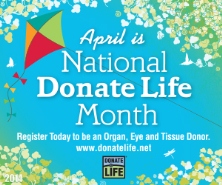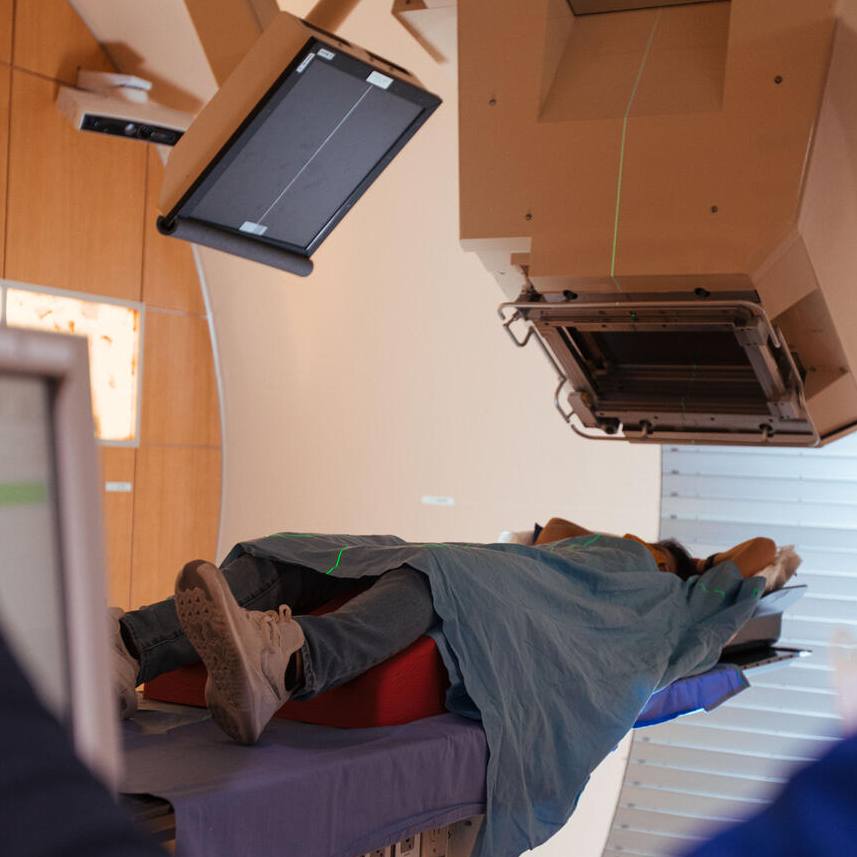-
Are you an Organ Donor? Mayo Clinic Expert Discusses 5 Myths about Organ Donation
April is Donate Life Month; make your wishes known and don’t let misinformation stop you from saving lives
ROCHESTER, Minn. — April is Donate Life Month, a national recognition to help encourage Americans to register as organ, eye and tissue donors and to celebrate those who have saved lives through the gift of donation.
Journalists: Sound bites with Dr. Edwards are in the downloads.
Nationally, Mayo Clinic has over 3,000 patients on the waiting list for an organ transplant. In recognition of Donate Life Month, Brooks Edwards, M.D., director of the William J. von Liebig Center for Transplantation and  Clinical Regeneration and a transplant cardiologist, is available to the media to answer common questions and address myths and misconceptions pertaining to organ donation.
Clinical Regeneration and a transplant cardiologist, is available to the media to answer common questions and address myths and misconceptions pertaining to organ donation.
Some common myths include:
Myth: If I agree to donate my organs, the hospital staff won't work as hard to save my life.
Fact: When you go to the hospital for treatment, doctors focus on saving your life — not somebody else's. You'll be seen by a doctor whose specialty most closely matches your particular emergency, not by a doctor who performs transplants.
Myth: Organ donation is against my religion.
Fact: Organ donation is consistent with the beliefs of most major religions. This includes Roman Catholicism, Islam, most branches of Judaism and most Protestant faiths. If you're unsure of or uncomfortable with your faith's position on donation, ask a member of your clergy.
Myth: An open-casket funeral isn't an option for people who have donated organs or tissues.
Fact: Organ and tissue donation doesn't interfere with having an open-casket funeral. The donor's body is clothed for burial, so there are no visible signs of organ or tissue donation.
Myth: I'm too old or too sick to donate. Nobody would want my organs or tissues.
Fact: There's no defined cutoff age for donating organs. The decision to use your organs is based on strict medical criteria, not age. And, very few medical conditions automatically disqualify you from donating organs. Don't disqualify yourself prematurely. Let the doctors decide at your time of death whether your organs and tissues are suitable for transplantation.
Myth: Rich and famous people go to the top of the list when they need a donor organ.
Fact: The rich and famous aren't given priority when it comes to allocating organs. It may seem that way because of the amount of publicity generated when celebrities receive a transplant, but they are treated no differently from anyone else. The reality is that celebrity and financial status are not considered in organ allocation.
Why you should consider organ donation
More than 120,000 people are waiting for organ transplant in the United States. Nearly 2,000 of those are children. Every 10 minutes another name is added to the national waiting list. An average of 18 people die each day in the United States waiting for transplants that can't take place because of the shortage of donated organs.
By donating your organs after you die, you can save or improve as many as 50 lives. And many families say that knowing their loved one helped save other lives helped them cope with their loss.
It's especially important to consider becoming an organ donor if you belong to an ethnic minority. Minorities including African-Americans, Asians and Pacific Islanders, Native Americans, and Hispanics are more likely than whites to have certain chronic conditions that affect the kidney, heart, lung, pancreas and liver. Certain blood types are more prevalent in ethnic minority populations. Because matching blood type is usually necessary for transplants, the need for minority donor organs is especially high.
For kidney, liver and bone marrow transplant, living donors can help shorten the wait time for many patients. A living donor can sometimes start a chain of transplants, called a paired exchange, thereby saving not just one life, but several. For every recipient who can get an organ from a living donor, there is one fewer person on the waiting list, thereby giving the remaining people on the list a better chance and more hope of getting a transplant.
For more information about organ donation, visit www.donatelifeamerica.org.
About Transplantation at Mayo Clinic
Mayo Clinic has one of the nation’s largest and most experienced transplant practices, with campuses in Minnesota, Arizona and Florida. Over 200 doctors in transplant medicine and surgery perform about 1,800 transplants a year, and have a long track record of excellent outcomes. The opportunity to collaborate with multiple transplant programs allows Mayo Clinic patients access to a multidisciplinary transplant team and the opportunity for multiorgan transplantation if necessary.
###
About Mayo Clinic
Recognizing 150 years of serving humanity in 2014, Mayo Clinic is a nonprofit worldwide leader in medical care, research and education for people from all walks of life. For more information, visit 150years.mayoclinic.org, www.mayoclinic.org and newsnetwork.mayoclinic.org.
MEDIA CONTACT:
Ginger Plumbo, Mayo Clinic Public Affairs, 507-284-5005, Email: newsbureau@mayo.edu







